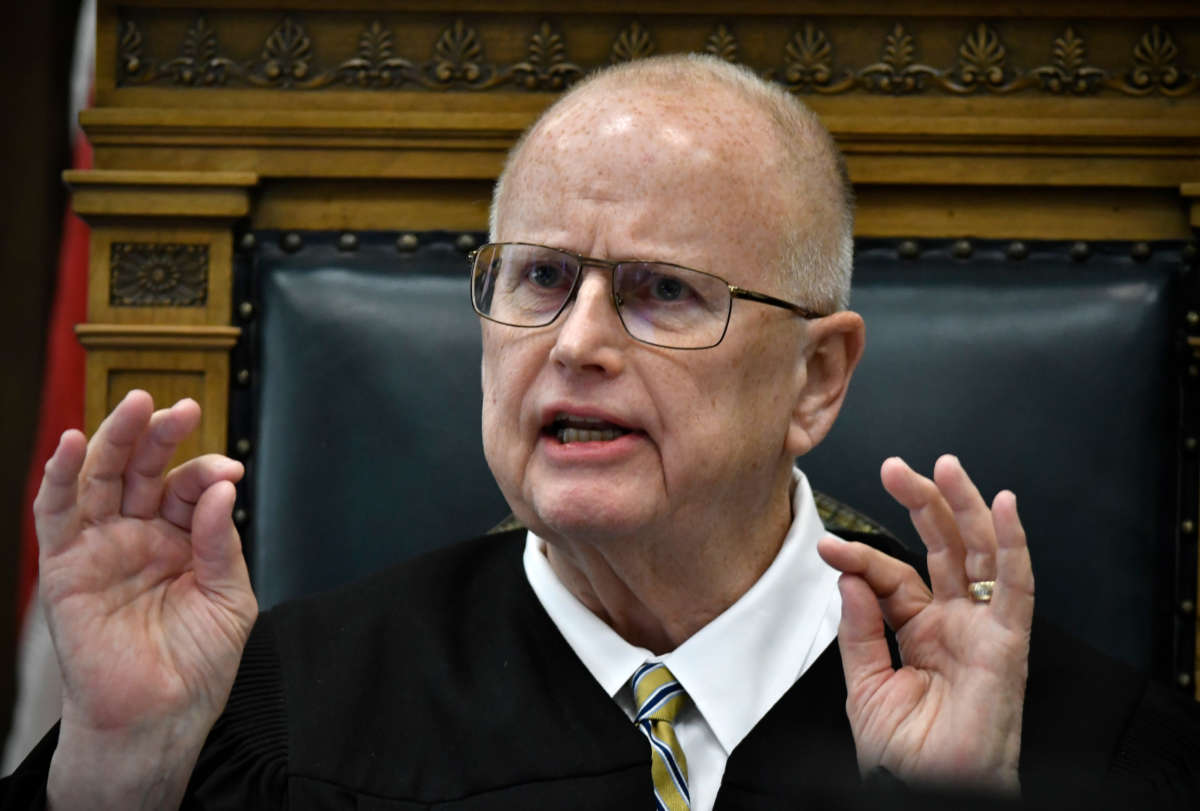Judge Bruce Schroeder, who is overseeing the proceedings for the Kyle Rittenhouse trial, made a blatantly racist comment about Asians on Thursday.
Schroeder, who is the longest-serving active judge in Wisconsin trial courts, made a racist joke ahead of the courtroom’s lunchtime recess.
“I hope the Asian food isn’t coming… isn’t on one of those boats from Long Beach Harbor,” Schroeder said.
John Yang, president and executive director of Asian Americans Advancing Justice-AAJC, told CNN that Schroeder’s words could have a significant and detrimental impact on Asian Americans.
“It harms our community and puts us in the crosshairs of microaggressions as well as actual physical violence,” Yang pointed out, adding that “any Asian American that sees or hears his statement will understand that he is making fun of or mocking our community.”
Eric Feigl-Ding, an epidemiologist and health economist who frequently comments about social issues on Twitter, agreed.
“Yes it is RACIST,” Feigl-Ding wrote. The boats that Schroeder referred to, which are backed up due to supply chain issues around the world, “are majority boats from Asia. And he said Asian food – which further connects the Asian boats,” Feigl-Ding added.
The idea that the boats were slow because they were from Asia is a well-known racist trope, he went on:
Most Chinese-Americans knows [sic] the racist idiomatic slang ‘Slow boat to China’ to mock anything that takes a long time. I’m Asian-American immigrant – I heard this crap all the time. It’s racist. He could have just said the lunch was late.
In wake of Shroeder’s comment, civil rights leader DeRay Mckesson questioned the judge’s ability to oversee the Rittenhouse case. “It’s pretty clear that this man should not be a judge of anything,” Mckesson said.
MSNBC host Mehdi Hasan echoed those concerns.
“So we’re supposed to have faith in this judge and this trial? Day after day it gets worse,” Hasan said.
Last summer, Kyle Rittenhouse traveled from Illinois to uprisings in Kenosha, Wisconsin, where people were protesting the police shooting of Jacob Blake. There, the 17-year-old shot three people with a military-style rifle, killing two of them and severely injuring the third. Rittenhouse is currently being charged with felony homicide — and this isn’t the first time that Schroeder’s involvement in the case has been brought into question.
The judge has banned the use of certain terms in the courtroom, ruling that the prosecution can’t use the word “victim” to describe the people that Rittenhouse shot last year. But defense lawyers are free to describe Rittenhouse’s victims as “rioters” or “looters,” even though it hasn’t been proven that any of the individuals he attacked were committing criminal acts that night — and even though the terms are clearly racially coded.
Schroeder has also barred prosecutors from asking questions about Rittenhouse’s connection to the Proud Boys, a far-right, white nationalist group that often instigates violence at protests. But despite saying that he wants to avoid making this case about politics, the judge has allowed defense lawyers to call up witnesses that have wrongly described the protestors in last year’s uprisings as being part of “antifa.” Although the term refers to loose collectives of people with an ideological stance against fascism rather than any centralized group, right-wing fearmongers often claim that “antifa” is a formal organization that has engaged in violent acts, primarily as a means to rile up their base against left-wing protesters.
Media that fights fascism
Truthout is funded almost entirely by readers — that’s why we can speak truth to power and cut against the mainstream narrative. But independent journalists at Truthout face mounting political repression under Trump.
We rely on your support to survive McCarthyist censorship. Please make a tax-deductible one-time or monthly donation.
